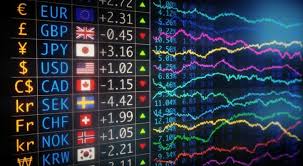
Understanding Forex Trading Tax Calculators
Forex trading has become increasingly popular among investors, providing opportunities for substantial profits. However, with the potential for financial gain comes the obligation to adhere to tax regulations. A Forex trading tax calculator can be an invaluable tool for traders looking to simplify their tax obligations and ensure compliance. In this article, we will explore what Forex trading tax calculators are, how they work, and their significance in the trading world. For those trading in Nigeria, consider exploring forex trading tax calculator Nigerian Trading Platforms for further insights.
What is a Forex Trading Tax Calculator?
A Forex trading tax calculator is an online tool designed to help traders estimate their tax liabilities resulting from their trading activities. These calculators take into account various factors, such as profits, losses, trading frequency, and the type of trading account used. They can provide an estimate of the capital gains taxes you may owe, assisting you in preparing your tax returns properly.
Why is Tax Calculation Important in Forex Trading?
Understanding how taxes apply to Forex trading is crucial for several reasons:
- Legal Compliance: Failing to report your trading profits accurately can lead to legal consequences, including fines and penalties. Tax agencies worldwide are increasing their scrutiny of Forex traders.
- Profit Optimization: A precise understanding of your tax obligations can help you plan your trades more effectively, potentially maximizing your after-tax profits.
- Record Keeping: A tax calculator helps you maintain organized records of your trading activities, simplifying the tax filing process.

How Does a Forex Trading Tax Calculator Work?
Most Forex trading tax calculators work by allowing users to input specific data related to their trading activities. This data may include:
- Trading gains and losses
- The duration of each trade
- The type of account (individual, joint, corporate)
- Lorem Ipsum
After entering this information, the calculator will generate an estimate of taxable income from Forex trading. Many calculators also provide insights into how different scenarios can impact your tax situation, helping traders make informed decisions.
Types of Taxes Affecting Forex Traders
Forex traders are liable for different types of taxes depending on the jurisdiction and the specifics of their trading activities:
- Capital Gains Tax: In many jurisdictions, profits from Forex trading are considered capital gains and are taxed accordingly. This might include short-term and long-term capital gains tax rates based on the holding period of the trades.
- Income Tax: In some countries, Forex trading profits may be classified as ordinary income, subject to regular income tax rates.
- Transaction Taxes: Depending on the country, there may also be transaction taxes applicable to Forex trades.

Choosing the Right Forex Trading Tax Calculator
When selecting a tax calculator for Forex trading, consider the following factors:
- Ease of Use: The calculator should have a user-friendly interface, making it easy for traders to input their data without confusion.
- Accuracy: Ensure that the calculator you choose is reliable and up-to-date with the latest tax laws and regulations applicable to Forex trading.
- Comprehensive Features: Look for calculators that offer additional features, such as the ability to track losses, deduct expenses, and provide insights into various tax scenarios.
Common Mistakes to Avoid When Calculating Forex Trading Taxes
Accurate tax calculation is paramount, and there are common pitfalls traders should avoid:
- Neglecting Record Keeping: Traders often fail to maintain detailed records of their trades, which can lead to incorrect calculations and potential issues with tax authorities.
- Ignoring Specific Regulations: Tax laws vary widely across different countries. Traders must be aware of the regulations that apply to their specific situation.
- Underestimating Expenses: Many traders overlook allowable deductions for expenses associated with trading, such as platform fees or educational costs.
Conclusion
Utilizing a Forex trading tax calculator can significantly simplify the process of preparing for tax obligations associated with trading. By understanding the importance of tax compliance, recognizing the types of taxes applicable, and selecting the right calculator, traders can optimize their trading strategies and avoid legal pitfalls. Always remember that tax regulations are complex and can differ widely by jurisdiction, so it may also be beneficial to consult a tax professional to ensure your tax strategy aligns with your trading activities.
Leave a Reply